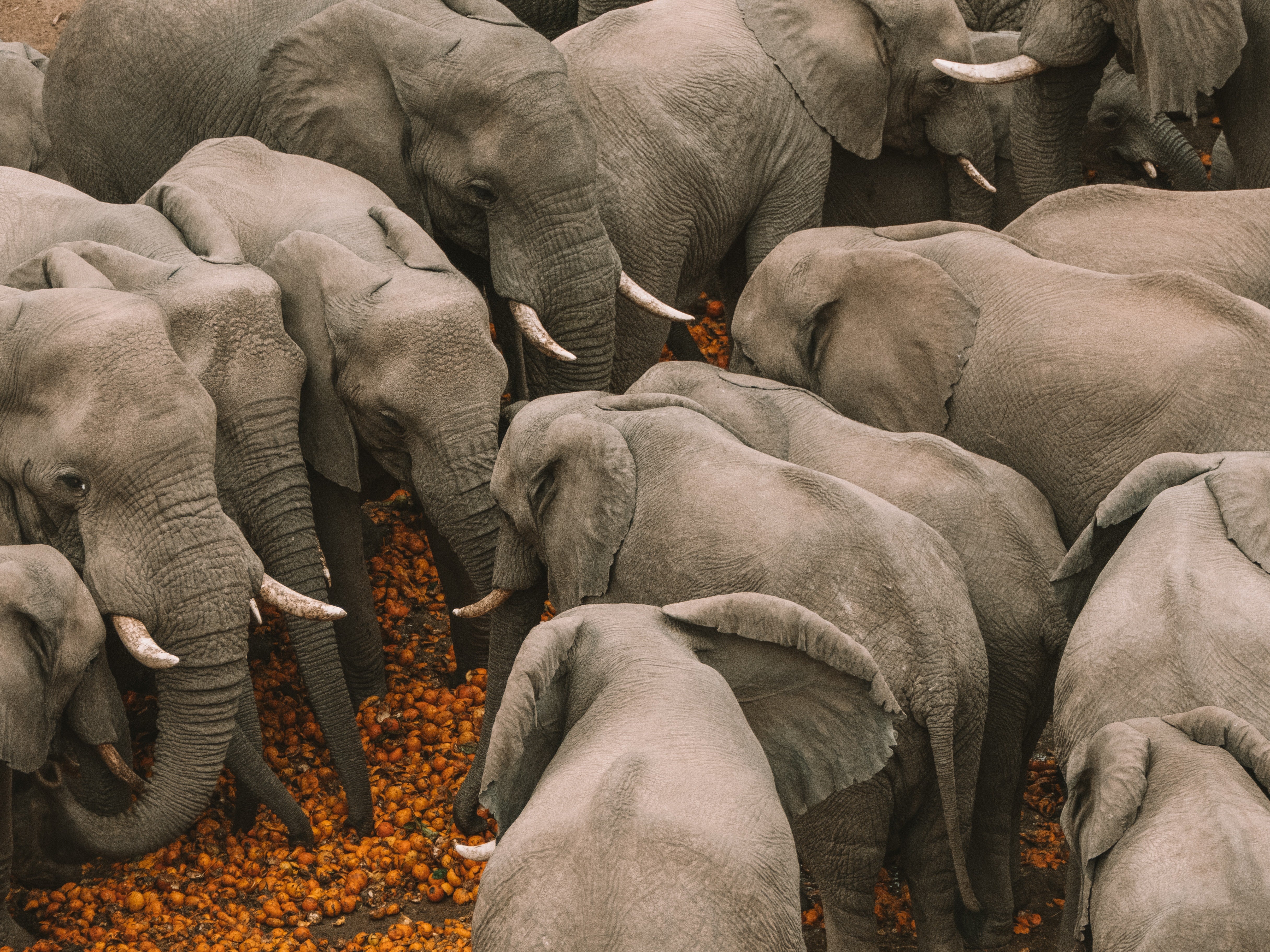Zimbabwe Elephant Summit held to support conservation
African countries wanting to reopen trade warned former markets have no appetite to buy more tusks

Your support helps us to tell the story
From reproductive rights to climate change to Big Tech, The Independent is on the ground when the story is developing. Whether it's investigating the financials of Elon Musk's pro-Trump PAC or producing our latest documentary, 'The A Word', which shines a light on the American women fighting for reproductive rights, we know how important it is to parse out the facts from the messaging.
At such a critical moment in US history, we need reporters on the ground. Your donation allows us to keep sending journalists to speak to both sides of the story.
The Independent is trusted by Americans across the entire political spectrum. And unlike many other quality news outlets, we choose not to lock Americans out of our reporting and analysis with paywalls. We believe quality journalism should be available to everyone, paid for by those who can afford it.
Your support makes all the difference.By Nokuthaba Dlamini for The Standard in Zimbabwe
Diplomats from the European Union (EU), Sweden, and Japan say they attended the just-ended regional conference on elephant summit only to engage with Zimbabwe’s conservation efforts, and not to discuss reopening of the ivory trade.
Zimbabwe organised a Southern Africa Development Community (SADC) conference to influence African countries to push for the resumption of ivory trade ahead of the crucial 19th
Conference of the Parties to the Convention on International Trade in Endangered Species of Flora and Fauna (CITES CoP19) which will be held in November.
The conference held in northwestern Zimbabwe, near its largest game reserve, Hwange National Park, aimed to convince those opposing trade that African countries desperately needed to offload their ivory stockpiles to fund conservation efforts.
Satoshi Tanaka, Japan’s Ambassador to Zimbabwe, said his country had enough ivory stocks and would not be buying any in the immediate future even if the trade ban was lifted.
“The conservation of nature is very important for everyone, so I would like to know the situation of elephants and also (how) the discussion on ivory is going as it’s very important for everyone in the international community,” Tanaka said.
“Japan is serious about the protection of the environment, and we need to know how this discussion is going as conservation is very important to us.
“We still have the stockpile of ivory that we obtained in the past and we have some markets inside so for us, first we need to observe the CITES regulations.”
Ahead of the conference, Zimbabwe justified its lobby for the re-opening of formal ivory markets arguing that countries such as Japan were ready to buy its stockpiles.
Envoys from the EU and Japan were given access to the country’s ivory stockpiles before the conference, in an effort to enlist their support in pushing for the lifting of the CITES ban that has been in place since 1989.
Zimbabwe claims its ivory stockpile is worth US$600 million, but the valuation has been questioned by conservationists who say this figure is exaggerated.
The Japanese envoy’s sentiments were echoed by the head of the EU’s delegation in Zimbabwe, Timo Olkkonen, who said he was at the conference to understand the region’s challenges in protecting elephants.
“The questions around biodiversity in general are very important to us mankind, and the planet is facing a serious extinction of species at an alarming rate,” Olkkonen said in an interview.
“What is happening to the planet is catastrophic and it’s comparable to climate change. So that’s the general context of why we are here.
“We are talking about the elephants as they are important and have raised a bit of controversy and there are a lot of discussions around the fate of how African elephants should be treated in the international context of CITES.
“I am here to have a better understanding of the Southern African and Zimbabwean context and their way of thinking about the issue of elephants.
“I think we need to understand the challenges and discuss together what could be the solutions.”
Sweden’s Ambassador to Zimbabwe, Asa Pehrson, said her country had no position on calls to lift the global ban on ivory trade.
“On the issues of lifting the ban I would say that I have no position because that is not the main reason for me taking part at this conference, but of course we are aware of it and I am listening carefully and I take note, but I cannot have a position,” Pehrson said.
“We have three broad areas of cooperation that we are now exploring like biodiversity which is already an extension of cooperation with the environment, climate change, sustainable resources and so on.
“So we will be building on that and we will try to see how best we can help in biodiversity alongside democracy, human rights, rule of law and governance. My invitation here was to observe these discussions.”
Zimbabwe, which has the second largest population of elephants in Africa after Botswana, says it must be allowed to sell its ivory stocks to fund conservation and prevent human-wildlife conflicts, which are worsening.
This article is reproduced here as part of the African Conservation Journalism Programme, funded in Angola, Botswana, Mozambique, and Zimbabwe by USAID’s VukaNow: Activity. Implemented by the international conservation organisation Space for Giants, it aims to expand the reach of conservation and environmental journalism in Africa, and bring more African voices into the international conservation debate. Read the original story here:
Join our commenting forum
Join thought-provoking conversations, follow other Independent readers and see their replies
Comments